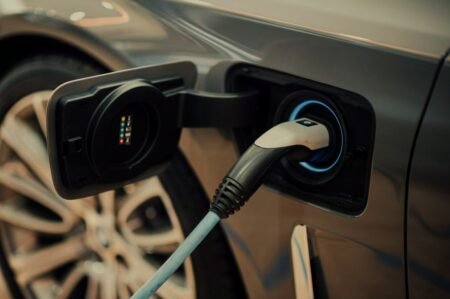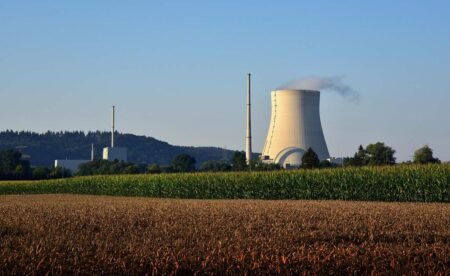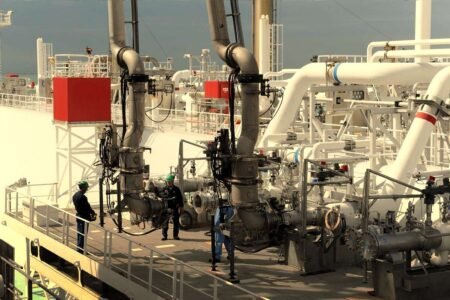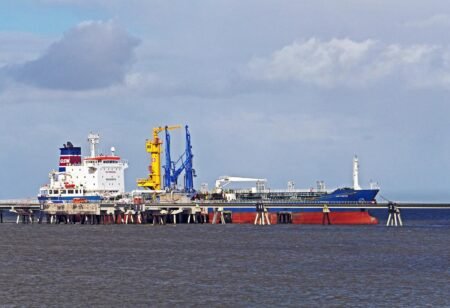The European Commission is proposing a new legislative tool and a European Gas Demand Reduction Plan, to reduce gas use in Europe by 15% until next spring.
Advertisement
1. What does the EU “Save gas for a safe winter” Plan contain?
The Plan sets out how the EU can tackle potential further disruptions in gas supplies from Russia in a coordinated manner, in view of the upcoming winter seasons. The Communication “Save gas for a safe winter” outlines the market situation, the instruments available under existing EU legislation on the security of gas supplies and the measures taken so far. Against the backdrop of tight market conditions and Russia’s continued weaponisation of gas supplies, it identifies a likely gap between supply and demand in case of a full disruption from Russia.
The Plan therefore proposes a voluntary gas demand reduction target of 15% from 1 August 2022 to 31 March 2023. To reach that target, it outlines various measures whereby Member States can encourage the decrease of gas demand and consumption by the public sector, businesses, as well as households. By the end of September, Member States are required to update their existing national emergency plans with their planned demand-reduction measures to meet this target. The Annex on demand reduction details policy measures available to incentivise fuel switching and the decrease of gas consumption. It also puts forward criteria for Member States to identify critical non-protected consumers should curtailment be necessary.
In addition, the plan is underpinned by a legislative proposal introducing a new EU emergency tool to address a potential gap between supply and demand in the European gas market. The proposed Regulation, based on Article 122 of the EU Treaty, introduces a process to declare, after consulting the Council, an EU alert if voluntary demand-reduction targets are not sufficient to prevent this gap. In case of such a situation, the Commission is empowered to activate a binding demand reduction target.
2. Why does the Plan include a new EU legal tool on gas demand reduction and what does it entail?
In its meetings on 31 May and 23 June 2022, the European Council requested the Commission to make proposals for improving preparedness for possible major supply disruption as a matter of urgency with a view to securing energy supply at affordable prices. The recent escalation of disruptions of gas supply from Russia points to a significant risk that a complete and protracted halt of Russian gas supplies may materialise in an abrupt and unilateral way. Immediate proactive and coordinated action at EU level can avoid serious harm to the economy and citizens resulting from a possible gas supply interruption. The existing Security of Supply Regulation (Regulation (EU) 2017/1938) is insufficiently equipped to deal with such a widespread, protracted disruption of gas supply to the detriment of European industry and consumers as it was designed for short-term and geographically limited disruptions. The proposed Council Regulation makes up for the missing legal framework. As all Council Regulations, it requires a qualified voting majority in the Council of the EU to enter into force.
Under the proposed Council Regulation, Member States would make every effort to reduce their national gas consumption between 1 August 2022 and 31 March 2023 by at least 15% compared to their average consumption in the same period during the five preceding years. They should build on the measures and criteria set out in European Gas Demand Reduction.
With the new legal tool, the Commission can also declare a Union alert, either at its own initiative or following a request by at least 3 Member States. This alert occurs when there is a substantial risk of a severe gas shortage or an exceptionally high demand of gas occurs, which results in a significant deterioration of the gas supply situation, but where the market is still able to manage that disruption. The Union alert would allow for a mandatory demand reduction target to be introduced.
Today’s proposal stipulates that by end-September 2022, Member States are required to update their national emergency plans, setting out the demand reduction measures they are planning, for example to implement fuel switching in industry and the power sector and limit the temperature in public buildings. To ensure coordination, they must consult the Commission and relevant stakeholders before introducing new demand reduction measures.
National authorities will be responsible for monitoring the implementation of demand-reduction measures on their territory and report to the Commission the achieved reduction every two months, not later than by the 15th of the following month.
The Commission, assisted by the Gas Coordination Group (consisting of Commission, Member States representatives as well as the European Network of Transmission System Operators for Gas, ENTSO-G), will be monitoring and enforcing such reductions closely, including by requesting additional measures to reach the mandatory reduction in case the submitted national plans are not deemed sufficient, or solidarity supplies are invoked by a Member State. In case of requests for solidarity supplies, the Commission will also require that Member States demonstrate that all appropriate gas demand reduction measures have been implemented domestically.
The Council Regulation should apply for a period of two years from its entry into force, but a review in view of the general EU gas supply situation is foreseen by August 2023 at the latest.
3. Who is the Commission proposing gas reduction measures for?
Existing EU security of supply rules guarantee that “protected customers”, namely households and essential social services such as hospitals and schools, are exempt from any gas rationing measure.
For this reason, the outlined measures are focused on industry. However, everyone can contribute to saving gas. Managed energy savings in all sectors of the economy today will be much less costly than rushed curtailment of industrial production tomorrow. We therefore encourage Member States to launch information campaigns to raise awareness among citizens and take measures to reduce heating, for instance, in public buildings and to reduce the gas consumed by non-critical power plants. It is up to each Member State to decide how best to apply demand reduction. However, Member States shall take into account the common set of prioritisation criteria and principles outlined in the Demand Reduction Plan in order to manage potential shortages in an economically efficient and solidarity-based manner.
The Commission is continuously working on the supply side by reaching out to alternative suppliers to secure additional deliveries. However, this will be insufficient in case of a major disruption. The Plan thus aims to ensure that gas supply matches demand over the winter. It also sets out common criteria to design national measures in case a gap emerges and curtailment becomes necessary.
4. Will industry need to reduce its activities?
The EU is doing all it can to prevent a reduction in industrial activity, but decreased industrial activity can’t be excluded in the face of security of supply threats. This is also why priority should be given to preventive gas-demand savings. In this spirit, the Demand Reduction Plan provides a set of common principles and criteria for the Member States to minimise the impact of significant gas disruptions on industries, especially those that have little room to switch away from gas or to reduce production without heavy damage. The guidance aims to guarantee coordination and solidarity between Member States, in order to reduce the potential adverse impacts of disruptions on the economy, industrial competitiveness and employment. It helps identifying the industrial sectors which across the Single Market are key to the smooth functioning of society and value chains.
Member States should prioritise measures encouraging the switching or substitution of natural gas with other fuels, preferably towards cleaner alternatives and renewable energy sources. It is essential that Member States consult stakeholders to ensure that all substitution possibilities and all existing alternative energy sources are prioritised and exhausted, before considering mandatory demand reduction. Gas flow restrictions, rationing, and curtailment would only have to be taken as a last resort, when all other options have been exhausted.
5. What exact measures and criteria are Member States advised to put in place to reduce gas demand?
The Gas Demand Reduction Plan encourages Member States to first target those sectors with better substitution possibilities, and to share the burden across the economy, building on the existing national emergency plans and best practices. It underlines the potential savings from reduced demand for heating and cooling for example through information campaigns or by limiting heating and cooling, especially in large buildings, and avoiding outdoor terrace heating.
Given the large amount of gas used to generate electricity, the Plan notes the potential to switch to other fuels to generate electricity. Market-based instruments, such as auctions or tender systems including at cross-border level or the use of “interruptible contracts” are other measures Member States could put in place to reduce demand. The Plan also points to the concept of swapping contracts between large customers, where a large energy-intensive company in a region facing a supply shortage temporarily swaps production to a region which is less affected.
In case demand reduction for non-protected customers becomes a necessity, Member States should take into account a set of criteria, such as the criticality of societal services and cross-border value chains, practical considerations such as fuel substitution and gas consumption reduction possibilities, and potential damage to installations due to halted or postponed activity. When designing curtailment measures, broader economic considerations such as the importance of a specific sector in a value chain should also be taken into account. Member States should build on these guidelines when updating their national gas security of supply emergency plans.
6. How will this Plan preserve the internal energy market?
This plan will strengthen the EU energy market and internal market by enhancing coordination and cooperation between Member States to optimise the distribution of gas to where it is most needed. The Commission will remain vigilant to protect the Single Market, in particular to prevent any undue restriction of trade between Member States.
The existing Gas Coordination Group (consisting of Commission, Member States representatives as well as the European Network of Transmission System Operators for Gas, ENTSO-G) can meet whenever necessary including with representatives of the industry ministries It will play a critical role in monitoring the impact of demand reduction on critical sectors and value chains across the EU, and enabling the necessary exchange of information, associating other relevant stakeholders, social partners and policy fora where appropriate.
7. How will solidarity among the Member States be ensured?
The Plan hinges on the principle of solidarity. Each Member State will have to reduce its national gas consumption to contribute to address a gap between supply and demand in the EU, irrespective of where that gap emerges or is the worst. Measures will be designed at the national level.
In a situation of emergency, effective and prompt solidarity would be greatly facilitated by having bilateral solidarity agreements foreseen under the Regulation on gas security of supply in place, clarifying the technical, legal and financial arrangements to provide gas to the legally protected customers of neighbouring countries in case of crisis. All Member States who have not done so yet should finalise the preparation of the necessary solidarity agreements as fast as possible.
Furthermore, the Guidelines encourage Member States to cooperate when designing prioritisation criteria for curtailment. The Gas Coordination Group, the High-Level Working Group on Competitiveness and Growth of the Council and the EU Industrial Forum could all serve as fora for consultation and coordination.
8. Is the EU proposing gas rationing for private households?
No, private households fall within the definition of “protected customers” under the existing EU security of supply regulation. They would be the last to be affected by shortages and in absence of other unforeseen events, they would not be impacted directly by large scale disruptions from Russia.
Households play a very important role in the months ahead if reducing unnecessary consumption and avoiding waste of energy. Saving gas would not only help reducing the pressure to save elsewhere in the economy, it would also lower the cost of energy bills. Households across the EU are therefore encouraged to contribute to this societal energy-saving exercise by, for example lowering their heating or cooling, air drying laundry, switching off unnecessary lights, and improving home insulation where possible. Individual steps, when taken together, add up to significant savings: a lower thermostat temperature for heating alone can save up to 10 bcm of gas per year.
9. Will this Plan have an impact on prices and will you impose a price cap on gas?
Due to the geopolitical and market situation, we expect gas prices to remain high, but a reduction in consumption might have a positive impact due to decreasing demand. We still encourage the Member States to continue using our Energy Prices Toolbox setting out the measures to cushion the impact of sustained prices on businesses and households.
The European Council has tasked the Commission to study a price cap on imported gas. That work is ongoing. We are looking into different models and ways in which a price cap could work in a situation of gas disruption or emergency situations. The Commission has so far not proposed a price cap and today’s plan does not contain proposals in this regard.
10. What has the Commission done to ensure security of EU gas supply?
Over the past months and years, the Commission has taken a range of measures to ensure secure gas supplies, building on the general progress made in security of gas supply legislation as well as infrastructure allowing for diversification.
After the last gas crisis in 2009 and Russia’s annexation of Crimea and Sevastopol, the EU has put in place a framework to address security of gas supply risks and mitigate disruptions. The EU has significantly improved gas interconnections to deliver gas to where it is needed, allowing reverse flows and strengthening our LNG import capacity.Every Member State now has more than one source of gas supply.
The Commission has also carried out an in-depth review all the national gas security of supply emergency plans, as well as in-depth monitoring of the security of supply situation and risk assessment.
As risks of disruptions became more apparent with Russia’s invasion of Ukraine, the Commission tabled a proposal in March requiring the refilling of gas storage facilities before the winter (80% by 1 November 2022). Swiftly agreed by the European Parliament and Council of the EU, the rules are now in force.
After presenting an outline in March, the Commission came forward with the REPowerEU Plan in May to wean the EU away from imports of Russian fossil fuels. The plan is centered onaccelerating the rollout of renewable energy, frontloading investment in energy efficiency, and diversifying our energy sources and suppliers.
The Commission established with the Member States the EU Energy Platform to coordinate action on energy supplies, with a view to joint purchasing in the future. Through the platform, additional gas supplies to the EU have already been secured for the coming years, either LNG or via pipeline, thanks to deals with the US, Egypt and Israel, and Azerbaijan. The Commission is continuously working on the supply side by reaching out to alternative suppliers to secure additional deliveries.
Factsheet – Save gas for a safe winter
Factsheet A European Gas Demand Reduction Plan
Factsheet-Supporting cities to save energy
Source: European Commission







